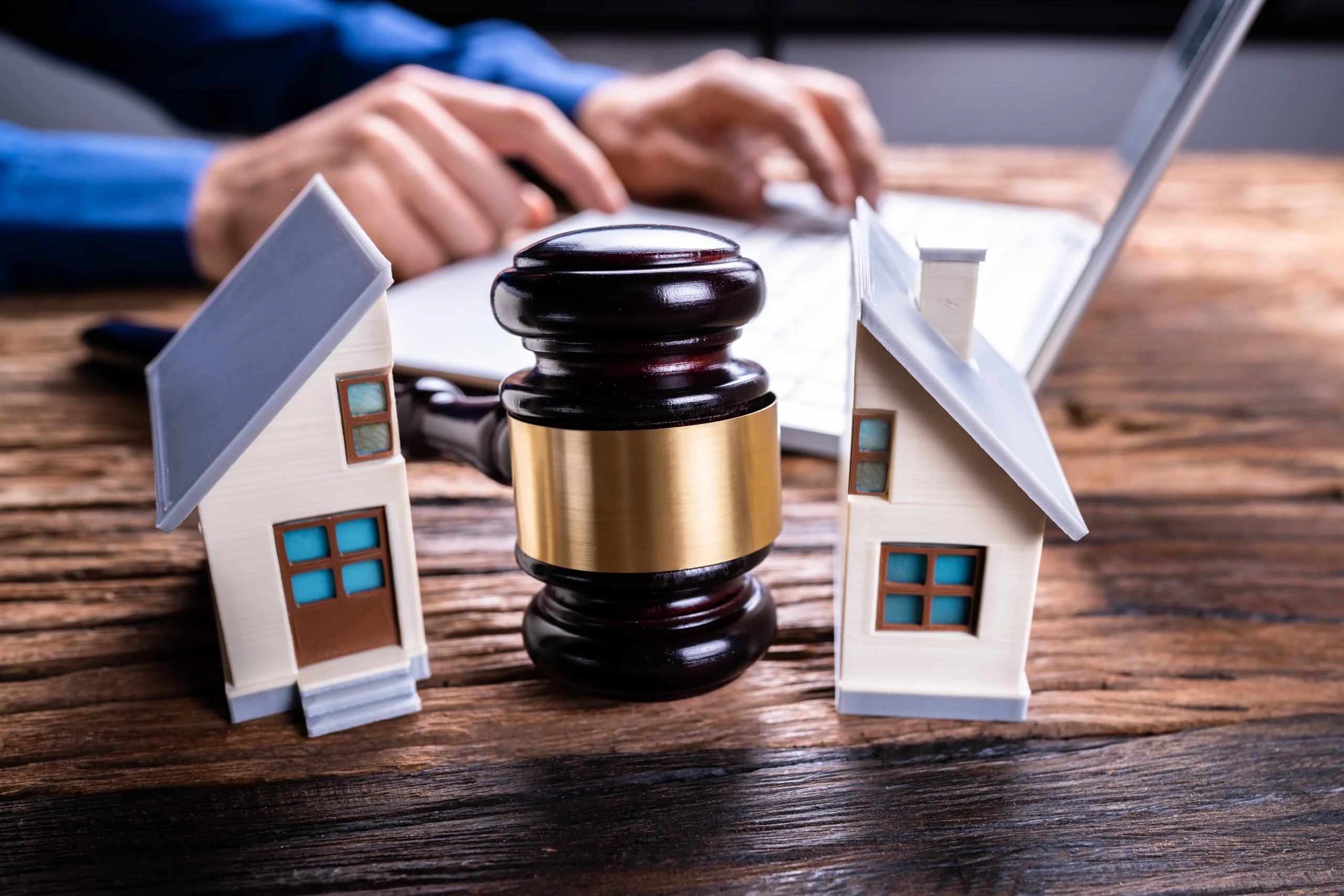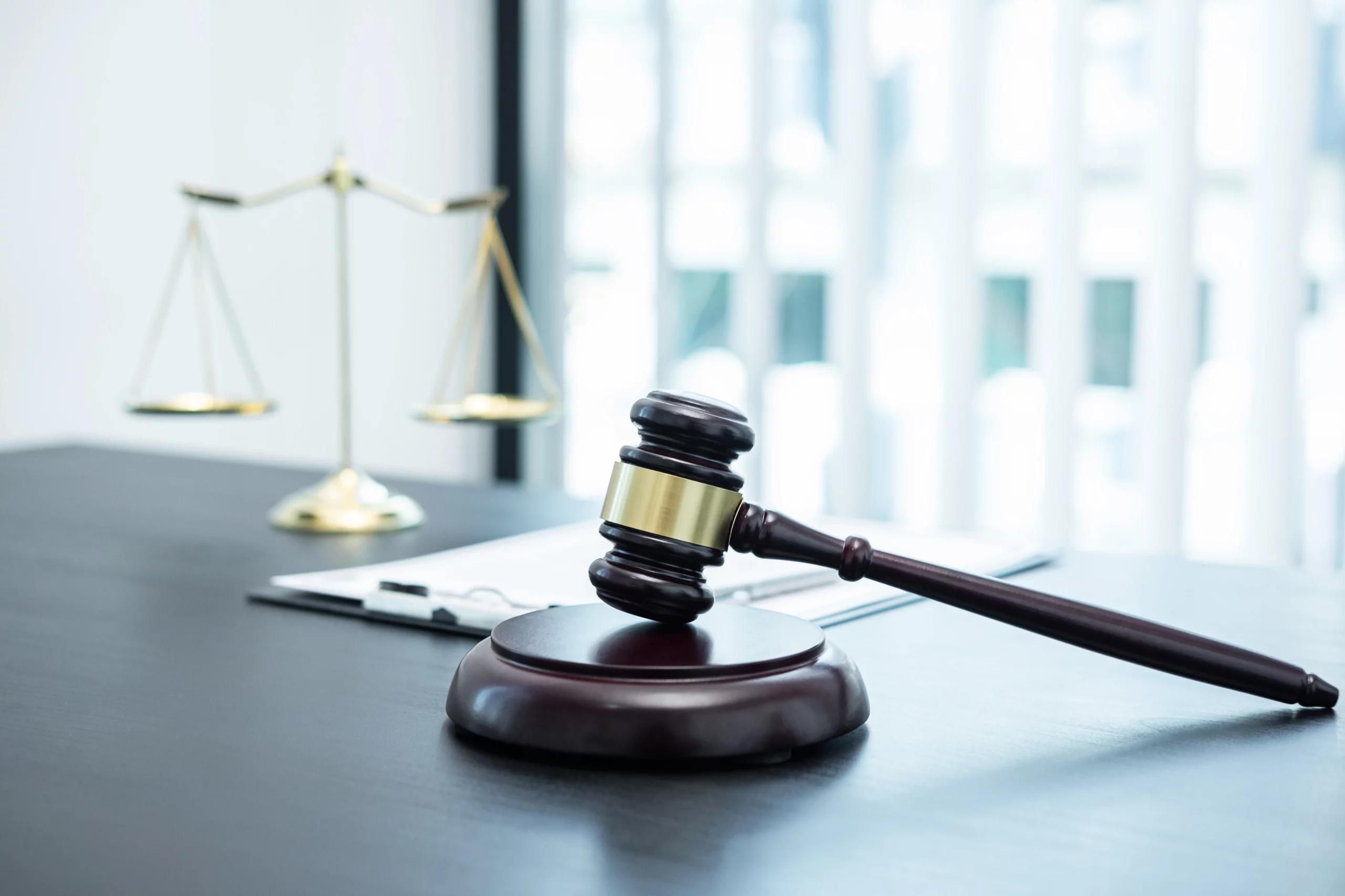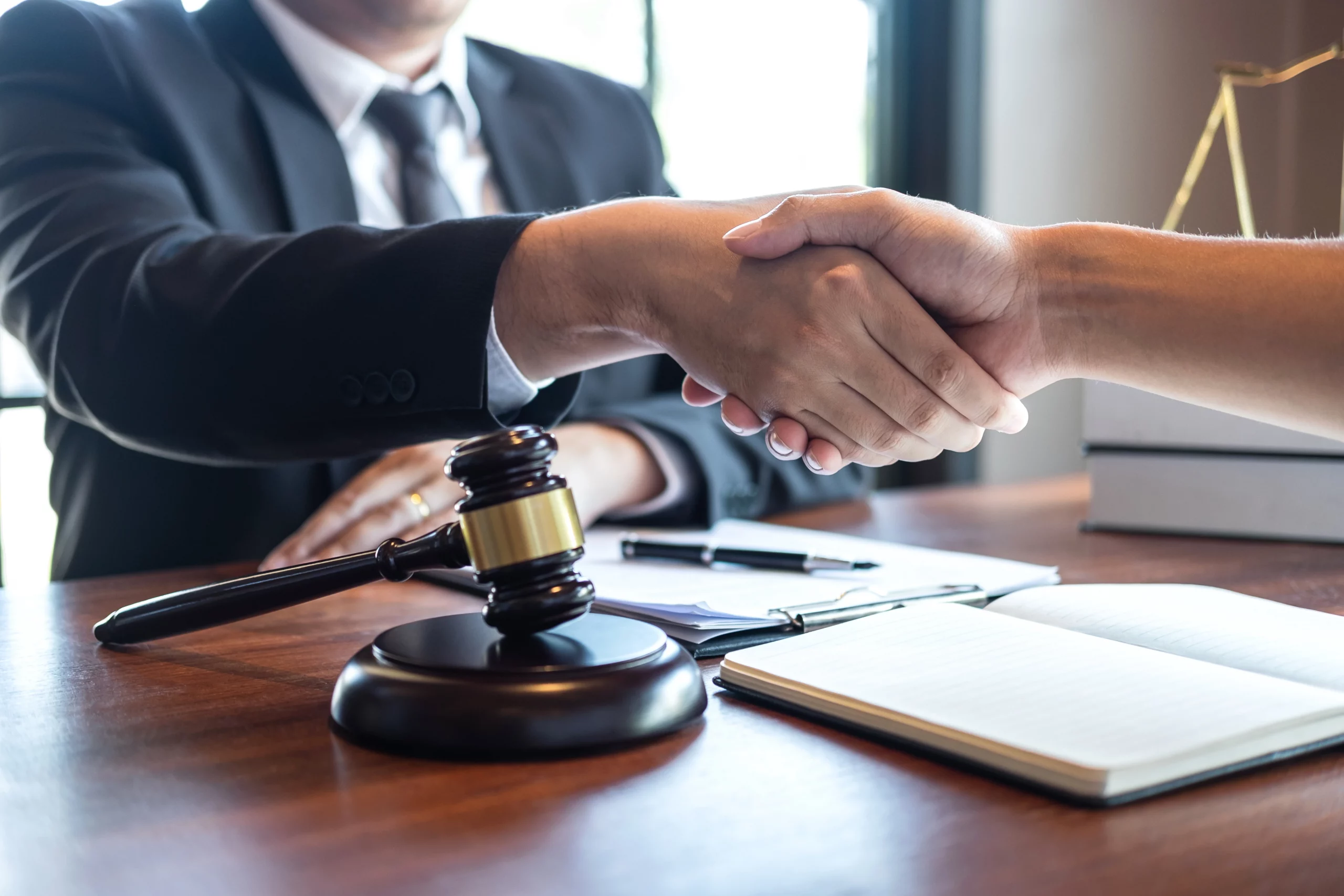Premises Liability Claims | Slip, Trip, and Falls
The Best Premises Liability Injury Law Firm
Premises Liability > Claims
Here’s what you need to know about establishing property owner liability for a successful insurance claim. Get the injury compensation you deserve.
DEFINITION OF “PREMISES LIABILITY CLAIM”
A premises liability claim is filed when someone is hurt because of a hazard or dangerous situation on someone else’s property. Property and business owners are liable for an injured party’s damages if they fail to take reasonable precautions to ensure the safety of their properties.
Proving negligence in a premises liability case requires showing that the owner knew or should have known about the potentially harmful condition but failed to take action to fix it or provide proper warnings. To better understand this subgenre of personal injury lawsuits, please read the details below.
PARTICIPANTS IN MOST CASES OF PREMISES LIABILITY
Commercial and residential locations, held by private and public bodies, might harbor hazardous situations, increasing the likelihood of accidents and injuries. These are some of the most often encountered defendants in a premises liability lawsuit:
- Shops that sell food and household items
- Places of Commercial Merchandise
- Malls with Department Stores
- Restaurants
- For example, pubs or nightclubs.
- Casinos
- Health and fitness clubs/gyms
- Places of public service
- The Hospitality Industry, Including Hotels and Resorts
- To Have Fun At
- Theme Parks.
- Shopping centers
- Salons
- The Building Sites
- Green spaces or sidewalks
- Condominium and apartment building owners
- Individual property owners
Your strategy for filing a claim in court will change based on the nature of the property where your accident took place. If the incident occurred on public or government property, additional deadlines or procedures might apply to your case. [2] If you want to maximize your compensation, you should talk to a premises liability lawyer who is familiar with the nuances of such cases and how to handle any complications that may arise.
Injury Claims
Free Consultation
NO FEE UNLESS WE WIN
DANGEROUS AND ACCIDENTAL EVENTS
The following are just a few examples of the many various kinds of incidents that can happen on commercial or residential properties and that are often at issue in premises liability claims:
- Accidents involving slipping and falling on flat, smooth surfaces because of moisture or slickness
- Slips, trips, and falls because of things like uneven ground, loose wires, and other debris in the way
- Hazardous environments bring on accidental stair or escalator falls.
- Mishaps in elevators caused by sloppy upkeep or faulty construction
- Clients get hit in the face or neck by falling merchandise from high shelves.
- Puncture or laceration injuries can be caused by:
- Sharp corners on shelves, display cases, and carts.
- Doors and hinges can break and bang on customers, injuring their fingers or, even worse.
- Extreme congestion that causes people to push, shove, or even tread on one another
- Injuries caused by shopping carts
- Lack of security in public locations, such as stairwells, parking garages, and other parking structures, can lead to:
- Accidents that may have been avoided if the hazard was cleared of snow, ice, oil, or other potential ice- and oil-related hazards
- Being exposed to poisonous chemicals or substances
- Experiencing food or drink poisoning while on the grounds
- Accidents and injuries in swimming pools due to poor maintenance
- There is a lack of gym or fitness center maintenance.
The details of your accident and the extent of your injuries will determine the kind of claims you file. Our premises liability attorneys will craft a compelling claim on your behalf based on the nature of the accident, the extent of your injuries, and the value of your losses.
YOU NEED THE HELP OF A KNOWLEDGEABLE COLORADO SPRINGS ATTORNEY WHO SPECIALIZES IN PREMISES LIABILITY.
Premises liability claims can be complex, as they often include multiple jurisdictions’ laws and procedures. Victims of wrongdoing frequently give up on filing suit because they anticipate it will be a major bother.
A competent Colorado Springs premises liability attorney can help you show the business or property owner was negligent and obtain the maximum compensation to which you are entitled. Our attorneys at Warrior Personal Injury Lawyers have seen it all when it comes to premises liability lawsuits, and they will fight for you to get the best possible outcome.
If you’ve been hurt in an accident, don’t wait to call the Warrior Personal Injury Lawyers at 719-300-110 for a free consultation with a seasoned personal injury attorney.
Thousands of people in the United States annually file claims against property owners for negligence.
About 20% of all personal injury lawsuits include accidents on another person’s property.
The legal concept of “premises liability” refers to a property owner’s responsibility to ensure invitees’ safety.
You should receive compensation if you were wounded due to a business’s or property owner’s carelessness. This is true whether you were hurt in a slip and fall, got food poisoning, or something else entirely.
As the injured party, you will have to provide evidence to the insurance company showing that the property owner is liable for your injuries.
In this section, we’ll explain all you need to know to successfully file a personal injury claim against a negligent property owner.
LEGAL PLAYERS IN PREMISES LIABILITY CASES
First, you must identify the individual or legal organization (such as a company) at fault for your injuries before submitting a claim for damages. Usually, we assume the property owner is responsible, but that’s not always the case.
Your claim’s next steps could also be influenced by the circumstances surrounding how you came to be on the premises in the first place.
LANDLORD OR TENANT?
Both commercial and residential real estate are common tenant destinations. It usually refers to who “controls” the region where you were injured to determine who is legally accountable for your damages.
The proprietor of a shopping mall may, for instance, rent out space to various businesses, including a supermarket, gym, salon, and department store.
IT IS SITUATION-SPECIFIC AS TO WHO IS RESPONSIBLE. FOR INSTANCE:
Slip and fall accidents caused by ice or snow on uncleared parking lots or walkways could be the property owner’s responsibility if they are tasked with overseeing these areas.
If a consumer trip and falls in the supermarket because of a puddle of juice, the store owner could be held responsible.
PROPERTY OWNER OR PROPERTY OCCUPIER?
Hair dye burns caused by a poorly blended dye job could be the responsibility of the beauty salon owner.
Injuries sustained on gym equipment that has not been properly maintained would be the responsibility of the fitness center.
WHO’S LIABLE DEPENDS ON THE CIRCUMSTANCES. FOR EXAMPLE:
The store might be held liable if a customer is hurt by falling items while shopping at a department store.
- Both homeowners and tenants in a home might be held liable for damages.
- The specifics of your injury will determine who is liable, the landlord or the tenant:
- The landlord is likely liable if you sustain injuries on a broken stairway in the building’s common area.
- However, the dog’s owner would be held principally responsible for the child’s injuries if the dog attacked the youngster.
- while the owner was walking the dog in a common area of the apartment complex.
- Multiple people or organizations may share responsibility for your harm, even if each blames the other.
Don’t discount the possibility of financial reward. Consult a personal injury lawyer for assistance in determining who is liable for your damages.
VISITOR TYPES OF A PROPERTY
- Most states’ premises liability laws include specific language addressing guests on private or public properties. The terms often define your purpose for being there.
- When you enter a business open to the public, such as a grocery store, shopping center, restaurant, or another establishment, you are there because you have been extended an invitation.
- You are also considered an invitee if you are on private property for commercial purposes, such as a plumber or delivery person.
- You are a licensee if you are a guest at someone’s private residence or other non-public property with that person’s consent.
- No one tolerates trespassers on their land. A trespasser typically has no recourse for harm sustained on private property.
WHY MIGHT A PROPERTY OWNER BE HELD RESPONSIBLE?
You must prove four components of negligence to establish the owner’s (or occupier’s) culpability for your injuries and losses.
- Duty of Care:The property owner has a duty of care to use reasonable precautions to ensure the safety of those on the premises.
- Breach of Duty:The owner did something incorrectly or failed to make a reasonable effort to fix a harmful condition, resulting in a breach of duty.
- Cause:your injuries were brought on by the property owner’s negligence. You wouldn’t be hurt if it weren’t for the owner’s carelessness.
- Damages: You have suffered real harm, as evidenced by hospital bills, doctor’s notes, and other documents.
It requires more than just claiming “They should have corrected it” to prove a property or company owner failed to take reasonable action to remedy a dangerous condition. You or your lawyer must provide evidence of:
- Foreseeability: The property owner knew or should have known that others were in danger. After a winter storm, the walkways outside a convenience shop will likely be covered in snow.
- Reasonableness: The owner of a piece of property must eliminate or fix a hazard on their premises within a reasonable amount of time. The front desk employee at a convenience shop should clear the walkways of snow each morning before the store opens. It’s unreasonable to expect the walkway to be cleared of snow at midnight during a snowfall.
WORKERS’ COMPENSATION CLAIMS AGAINST HOMEOWNERS, AS AN ILLUSTRATION
Sharon has been the Martins’ weekly housekeeper for almost two years. On Tuesdays when the Martins were at work, Sharon would enter the house using a house key they had given her to clean.
Sharon arrived at the Martin house on a Tuesday morning and went straight to work. She had just begun vacuuming the house when she opened a bedroom door to find a huge German Shepherd tearing into her.
Sharon was bitten on the face, arms, and legs, and the experience was traumatic for her.
The Martins were dog-sitting for their daughter while she was away on vacation. They should have warned Sharon that there would be a huge dog because they knew the dog was fearful of strangers.
The Martins had actual or reasonable cause to suspect that their dog posed a threat to their guests. They did not take any precautions to ensure that the dog was not in contact with Sharon or any other guests.
There was no logical reason for Sharon to be anywhere but at home cleaning the carpet. She had no part in bringing about her wounds.
The Martins bears full responsibility for the housekeeper’s harm as the property’s owners.
If an injury occurs and the business or property owner could have reasonably foreseen and prevented the risk, they may be held liable. For instance:
- A casino proprietor should check the integrity of all player-facing furniture regularly. The casino could be held responsible for any injuries sustained by patrons caused by a collapsed slot machine chair.
- Employers in the fast food industry are responsible for providing their staff with training on how to prepare food safely. The owners might be held accountable for the client’s food sickness if the meat they served was undercooked.
- If you get hurt on government property, and it was due to anything that could have been avoided, you may be able to sue the post office or whatever agency was responsible.
SUING THE OWNER’S INSURANCE COMPANY
Insurance companies are typically the first contact for premises liability cases. Corporations and large enterprises have millions of dollars in liability insurance, but they won’t hand over the cash without a battle.
$4.6 MILLION JURY AWARD FOR PARKING LOT INJURY
After Carla Denise Garrison got poked with a hypodermic needle her daughter found in a Target store’s parking lot, the South Carolina jury decided to award Garrison $4.6 million.
As they exited the car, Garrison’s daughter, then eight years old, picked up the hypodermic needle. The needle lodged in Ms. Garrison’s palm after she instinctively batted it out of her daughter’s hand.
Garrison fell unwell due to her use of anti-HIV drugs. Her husband missed time at work to take care of the kids and household.
Ms. Garrison’s lawyers approached Target about a settlement to pay for the family’s medical expenses and lost income. Following Target’s inadequate counteroffer of $750, the matter proceeded to trial.
According to Target, “no proof Target planted the needle in the parking lot” or knew it was there.
The jury found in favor of Carla Garrison, concluding that the property owner was responsible for the parking lot’s condition.
The jury awarded Ms. Garrison $4.6 million, some of which was in punitive damages meant to “send a clear message” to Target for their aggressive attitude against his client.
POINTING THE FINGER AT THE VICTIM
Insurance adjusters working with large corporations are aggressive professionals with extensive training. To defend oneself, it is common practice to place the blame on the one being attacked.
In the states of Alabama, Maryland, North Carolina, Virginia, and the District of Columbia, if the adjuster finds that you were even partially responsible for your injuries, they might completely reject your claim under the doctrine of pure contributory negligence.
No one will tell you that if you live in a state with pure comparative fault standards, like California or New York, you can sue for damages even though you are 99 percent responsible for your injuries.
As a result, if the adjuster believes that you were either 50% or 51% responsible for your injuries as opposed to the property owner’s negligence, they may dismiss your claim under the modified comparative fault rules used in most states.
If your claim is upheld under the rules of a modified comparative fault state, the amount of compensation you are entitled to will be lowered following the percentage of fault you bear. If your claim is worth $10,000, but the adjuster determines that you are 25% at fault, they will only pay you $7,500.
A further strategy employed by insurers to decrease payouts is to assert that the victim already had some kind of damage or illness.
TO WIN AN INSURANCE CLAIM, YOU NEED SOLID PROOF
Proof of the property owner’s liability will help you in a showdown with the insurance company.
You should begin collecting evidence to support your case as soon as you have an injury. When you’ve been harmed, you should never leave the situation without first telling someone how bad it is. The insurance company may have grounds to doubt your injury claim on their insured property if you wait a few days to evaluate how you feel.
Report the Accident: If you were hurt due to something unsafe on the premises, you should notify the owner or manager of the building immediately. You should get aid by calling for medical assistance. Getting to a doctor as soon as possible is recommended if you didn’t receive immediate care at the accident scene. If you go to multiple doctors, be sure they all know when, where, and how you were hurt.
Incident Report: The property owner or manager should fill out an incident report. Have a copy made for your files by asking for one. If they refuse, you can have your lawyer subpoena the report for use in court.
Insurance Information: Insurance Data Request the name and contact information of the property owner’s insurance provider. A homeowner’s insurance provider or a commercial liability insurer will be contacted to handle your claim.
Witness Information: Any person, such as a store clerk, who observed your injury is a potential witness, so be sure to collect their contact information. Collect the information of anyone who may have witnessed your accident or been aware of the danger before your injury.
Photographic Evidence: Take pictures or video of the accident scene, focusing on the unsafe condition that resulted in your injuries. Ask for copies of the day’s surveillance camera footage if you were hurt at a business. Your lawyer may use legal discovery to seek out video recordings as crucial evidence.
Medical Records: Request a copy of your medical history, beginning with the day of the accident and continuing through your recovery, under the heading “Medical Records.” Acquire bills for any medical care that has to be paid for out of pocket as well.
Lost Wages: Ask your employer for a formal statement detailing the amount of time off (including sick and vacation) that contributed to your inability to work while you recovered.
THE RIGHT LAWYER CAN INCREASE YOUR CHANCES OF SUCCESS.
If you have suffered serious or lasting injuries on another person’s property, proving the owner’s responsibility can be difficult. You should not trust the insurance adjuster to provide a reasonable settlement.
The stakes are too high to go it alone. The initial appointment with a personal injury lawyer is typically free of charge.
Discovering what a skilled personal injury lawyer can accomplish for you is free of charge and carries no risk.
AVOIDING FINANCIAL LOSSES DUE TO DAMAGES TO YOUR PROPERTY
Property owners will always have the possibility of legal action against them lurking in the background of their thoughts. It’s anxiety-inducing, but it’s worth thinking about. Preparing and inspecting your home is the greatest approach to avoiding mishaps.
Everyone, from guests to stray children to maintenance workers, falls under the purview of the property owner’s duty of care. A duty of care is the obligation that falls on the shoulders of a property owner to ensure the safety of everybody legally present on the owner’s premises. Most intruders are the only persons whose safety isn’t your responsibility.
If you want to avoid getting sued because someone got wounded on your property, you must ensure it’s safe for visitors. In addition, knowing the most dangerous regions and adequately insuring yourself against them is essential. Taking all of these safety measures will help you drastically reduce the likelihood of difficulties.
FIND THE RISKY SPOTS AND LOCK THEM DOWN.
Most accidents happen on sidewalks, on stairwells, and around swimming pools. People stumble on pathways, fall stairwells, and drown in pools; therefore, these are all extremely hazardous and accident-prone environments. Couches don’t present much risk of drowning, tripping, or falling off (though there are some possibilities).
Eliminating a major portion of your potential liability can be accomplished via routine inspection, maintenance, and repair of these areas.
The high volume of foot activity makes walkways inherently dangerous. The greater the volume of foot traffic in a certain place, the greater the probability of injuries occurring there. Take these measures to ensure the safety of your home or business’s most heavily traveled areas:
Walkways: Walkways should be kept clean and clear at all times.Check the walkways frequently for new risks, such as cracks in the pavement, uneven ground, or overflowing rain gutters.
Put a lot of lights so people can see. A well-lit pathway will allow pedestrians to see their route clearly at night.
Make the floor more stable and safe by adding nonslip material in heavy foot traffic areas. Putting down rugs or mats that won’t slide about is one option, but you could also cover the walkway in something that prevents people from slipping.
As soon as potential dangers are identified, they should be removed, or the area should be cordoned off. The longer dangers remain unchecked, the higher the probability of harm.
Stairwells: Accidents occur in general, but the added peril of a stairwell greatly increases the likelihood of injury. In contrast to a fall of four to six feet on a flat surface, a fall down a flight of stairs could result in a fall of 15, 20, or 30 feet or more. Naturally, any homeowner concerned about safety should pay close attention to the stairwells on their property.
Put up a solid handrail on either side of the steps if there isn’t one already. Make sure it’s built of something sturdy and durable, like metal, that won’t break easily. Ensure that all handrails, those already there and those you’ve just placed, are tightly in place.
Make sure the bottom and top of the stairs are as slip-resistant as the pathways. Putting down nonslip mats, carpeting (indoors), or coating with a nonslip coating are all good ways to achieve this.
Just like with the walkways, make sure the stairs are well-lit. The better the illumination, the simpler it will be for your guests to find their way around.
Clean up the stairwell and the landing area. Make sure no toys or other objects are blocking the steps.
Make it a habit to regularly inspect the stairs for spills, dangers, and anything else that could cause someone to fall.
Swimming pools :Your guests, especially curious kids, should be warned about the dangers posed by your swimming pool. Swimming pools are viewed as an aesthetically pleasing annoyance. The majority of states mandate that a fence enclose pools.
However, this is not always sufficient. If a youngster wanders into your property and accidentally falls into your pool, you may be held liable for their medical expenses even if they were not invited there.
The risks of liability are something every pool owner should be aware of. Compared to other states, Colorado has a higher rate of residential swimming pools. The Sunshine State, if you will.
Given the danger they present, take the following precautions:
Fencing and/or walls should surround the pool as previously suggested. Your pool areas should be so secure that a child would need the help of an adult to enter them.
Gates and locks should close automatically and be made childproof. Have you ever thought about why the handles on poolside screen doors are usually placed at the perfect height for an adult’s reach? That’s so kids won’t be able to get to them.
Check that all the latches, door knobs and other entry points to your pool are secure. It’s amazing how even the youngest youngster can find out how to open even the most complex locks and latches.
Get rid of anything near your fences or gates that could be utilized as a stepping stone. Things near the fence are included because they can serve the same function if moved over.
Do your best to maintain a clutter-free pool area. Have a spot where pool toys and floats may be stored out of the way when you or your children are finished swimming.
Similarly, keep all pool chemicals behind locked doors to avoid potential poisonings. Most pool chemicals are highly poisonous and even lethal.
PREVENTING INJURIES AND LEGAL TROUBLE ON YOUR PROPERTY
Let’s look at some strategies to reduce the danger of harm on your property in general now that we’ve evaluated the most typical areas where accidents happen and how to fix them. You’ll be less likely to be held responsible for any injuries that do occur if you take these precautions.
A good habit is to take frequent walks within and outside your home, scanning for any dangers.
Quickly address any safety concerns by cleaning up the area and fixing broken equipment.
When it gets dark outside, turn on the exterior lights.
When visitors come over, it’s a good idea to turn off the sprinklers, clear up any clutter, etc.
Use wet floor signs to alert people to potential accidents or damp spots (for businesses).
It may be wise to take the following precautions for the safety of both you and your guests:
Build a wall or fence around your entire property to keep trespassers and animals out. You can use this as evidence that you took precautions to keep people safe.
Arrange for cameras to be set up throughout the premises. Not only can you use them to keep an eye on the house when you’re not there or your kids while they’re at school, but the film may also be used as proof in court.
Anywhere it would be tricky to get around, like on a set of stairs or through a narrow hallway, you should put in handrails, fences, and step-ups.
REGULATIONS FOR VISITORS TO YOUR PROPERTY
If someone gets hurt on your property, there are a variety of legal words that could apply. These terms might come up in conversation with your lawyer or court if you or someone else was wounded on another person’s property.
The reasons a person is on your property can be broken down into the following groups.
LICENSEES
Potential visitors to your home fall mostly into two categories: licensees and neighbors. Guests granted a license to use your property for social events are licensed as licensees. The most prevalent types of licensees are:
- Related individuals
- Guest List: Pals in Need of a Party
- Boyfriend/girlfriend/partner
- Neighbors
INVITEES
A business invitee is a person who has been invited onto a property for official business. Since invitees are typically on your property for your benefit, you owe them the highest duty of care. It’s important to check for potential dangers before inviting guests to your house or place of business. A plumber, repairman, inspector, etc., are all examples of potential invitees (in-home or business).
Clients, potential employees, etc. (at home business or separate place of business).
TRESPASSERS
You may be held legally responsible for the actions of anyone on your land, but trespassers tend to be the most contentious and perplexing of these groups. Intruders are not welcome on your land and are not there with permission. Private property owners are under almost no duty to provide safety for trespassers. This includes random people cutting through the yard.
Anyone who has bad intentions while on your property, including thieves.
Ex-lovers, ex-friends, and other undesirable acquaintances.
This disproves the theory that midnight burglars could sue you for injuries sustained while fleeing with your television. Unfortunately, this is not the case.
THOSE PESKY LITTLE TRESPASSERS
The only kind of trespassers whose actions can put a landowner in the hot seat are minors. Some examples are:
Kids from the neighborhood enjoy some free time on the property.
Kids who have built a tree house or made a permanent play area (like a kickball field) on your land.
RESPONSIBLE PARTY: OWNER OR TENANT?
It’s not always the case that the property’s owner is also the person who resides there. The majority of houses and apartments are like this. This setup makes determining fault in the event of harm more complicated. Courts will need to decide whether the property owner or the occupant is responsible for damages if an accident occurs on the property. Most accidents are settled by determining who was at fault for creating the risk.
To answer this question, a court considers the following factors:
The spot where the mishap occurred. Occupant liability for most injuries sustained in a dwelling-related accident falls squarely on the shoulders of the occupier. When an injury happens in a common space, such as a sidewalk or the swimming pool area of an apartment complex, the owner is usually held liable.
Duty of the owner. The landlord of a rented home is responsible for fixing certain aspects of the premises. A property owner is typically held responsible for a leaky pipe that causes a slip-and-fall injury on dry indoor flooring.
Liability of the occupier. For within reason, it is the occupant’s responsibility to remove any potential threats from the dwelling and ensure the safety of any visitors. Even if they are renters, they still have a responsibility to ensure that their tenants do not leave any risks that could cause harm to others. If a renter, for instance, floods the bathroom by leaving a bucket of water there, the tenant will be held accountable. No judge can reasonably expect a landlord to watch the rented property around the clock.
In most circumstances, common sense will prevail in these predicaments. In most cases, a property owner would not be held responsible for damages related to matters over which they had no control, such as the location of the furniture.
If you follow this advice, you’ll drastically cut down on your potential legal trouble. The security of your loved ones and your guests can also be boosted. Everybody benefits.
WARRIOR PROFESSIONALS WHO REPRESENT VICTIMS OF ACCIDENTS AND OTHER INJURIES
If you are wounded on someone else’s property, you may have a claim for damages. You should hire a competent attorney and experienced to represent your interests in court.
If you were hurt because someone else was careless, they should help pay for your medical bills and other expenses while you focus on getting better. Make that responsible pay for their indifference.
Warrior Personal Injury Lawyers has the expertise to assist you in getting every dime in compensation you deserve after an accident. To schedule your no-cost initial consultation, please contact us at 719-300-1100 right away.

FREE CASE REVIEW
We are standing by ready, willing, and able to help you. You can schedule a free consultation here on our website, or give us a call and talk to us. Whatever you prefer, we will accomodate you!








